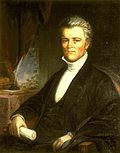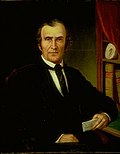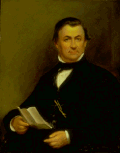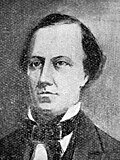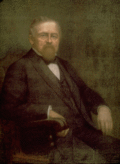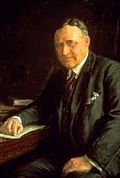
The governor of Indiana is the head of government of the U.S. state of Indiana. The governor is the head of the executive branch of Indiana's state government and is charged with enforcing state laws.
Contents
While a territory, Indiana had two governors appointed by the president of the United States. Since statehood in 1816, it has had 50 governors, serving 52 distinct terms; Isaac P. Gray and Henry F. Schricker are the only governors to have served non-consecutive terms. Four governors have served two four-year terms; territorial governor William Henry Harrison served for 11 years. The shortest-serving governor is Henry S. Lane, who served two days before resigning to become a U.S. senator. The current governor is Mike Braun, who took office on January 13, 2025.






